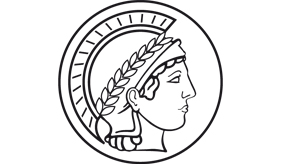The authors of this study are social scientists who have spent their professional lifetimes studying the process of development in sub-Saharan Africa since it emerged from colonial rule and interpreting the subject for the general public. African studies involve several disciplines, including social anthropology, history, and political science, represented in this volume by Günther Schlee, John Markakis and John Young, respectively. The three authors do not comprise a particularly diverse group; they are three old white men. But their combined experience in the field spans 135 years, and the Horn of Africa is the regional focus for all three. As it happens, this region also represents a striking paradigm of the enduring crisis of the Western nation-state model adopted in Africa, which is the theme of this collaborative volume. There is broad agreement between the three of us on this issue and the problem of Eurocentrism in African studies generally, although we do not have a unified position on other matters, and this will become apparent from our individual contributions.
Scholars on the subject of imported nation-state models in Africa concur that crisis resulted from a failure to consider material, social, cultural, and political contexts on a local level. The outcomes of these efforts, however, should not be considered a dead end, rather a stage in the ongoing process of development that is gradually transforming this setting. The field is further enriched with studies on state fragility and state failure, as well as proposed policies to prevent such scenarios. (Among the latter is a program designed “to build good leadership capacity among young African politicians” (Rotberg 2003)).
The mosaic of nation-states that exists today is often called the Westphalian order after the Peace of Westphalia treaties ended ongoing wars in Western Europe in the mid-seventeenth century, in part through the creation of sovereign states. Around this period, Europe experienced great leaps in technology and had an abundance of natural resources, and the sovereign state model was considered easily modifiable to meet local requirements for effective governance. In the mid-twentieth century, this same model was imposed across sub-Saharan Africa without preparation or adaptation to the continent that colonizers considered to be technologically underdeveloped and lacking in raw materials. The consequences of these actions are well known, yet poorly understood. In this volume, the authors seek to clearly define the causes and consequences of the imported nation-state crisis.
Although this model has been in place in Africa for over three quarters of a century, its suitability to the locations and eras in which it was imposed has seldom been raised in African studies. A notable exception in the Anglophone world is Basil Davidson (1992) who called the nation-state model the “Black man’s burden” in a book of the same title. Francophone Africanists were pioneers in economic anthropology, and prolific critics of orthodox development theory. Steeped in the Marxist worldview, however, they had little to say about the state, which they regarded as a dependent variable. The fact that the concept of the nation-state has not been more thoroughly addressed challenges the epistemological integrity of African studies. Where is the science on which this discipline claims to be based?
Founded in the West and dominated by Western scholars, the discipline thrives on modes of analysis that privilege European categories or ascribe greater rationality and agency to Western actors above all others. It is impossible to question the universal validity of the Western model within the limits of this discipline for there is no room for an alternative within its analytical spectrum. Because this methodology is part of the standard curriculum, scholars of African studies, including Africans, tend to be unprepared to challenge it. Any attempt to raise the topic elicits the stock response: what is the alternative?
The authors of this study do not intend to answer this question. Their intention is to provoke a debate on the crisis of the nation-state that will focus on the alien model itself, not on the African setting. They aim to do this by presenting the manifold impact of the crisis on two levels of society in the Horn: national and local. The challenges posed to the state as a result of the popular uprising in Sudan in 2019 and the outbreak of civil war in Ethiopia in November 2020 give further significance to this study.
John Markakis, Günther Schlee, John Young
Halle (Saale), December 2020
